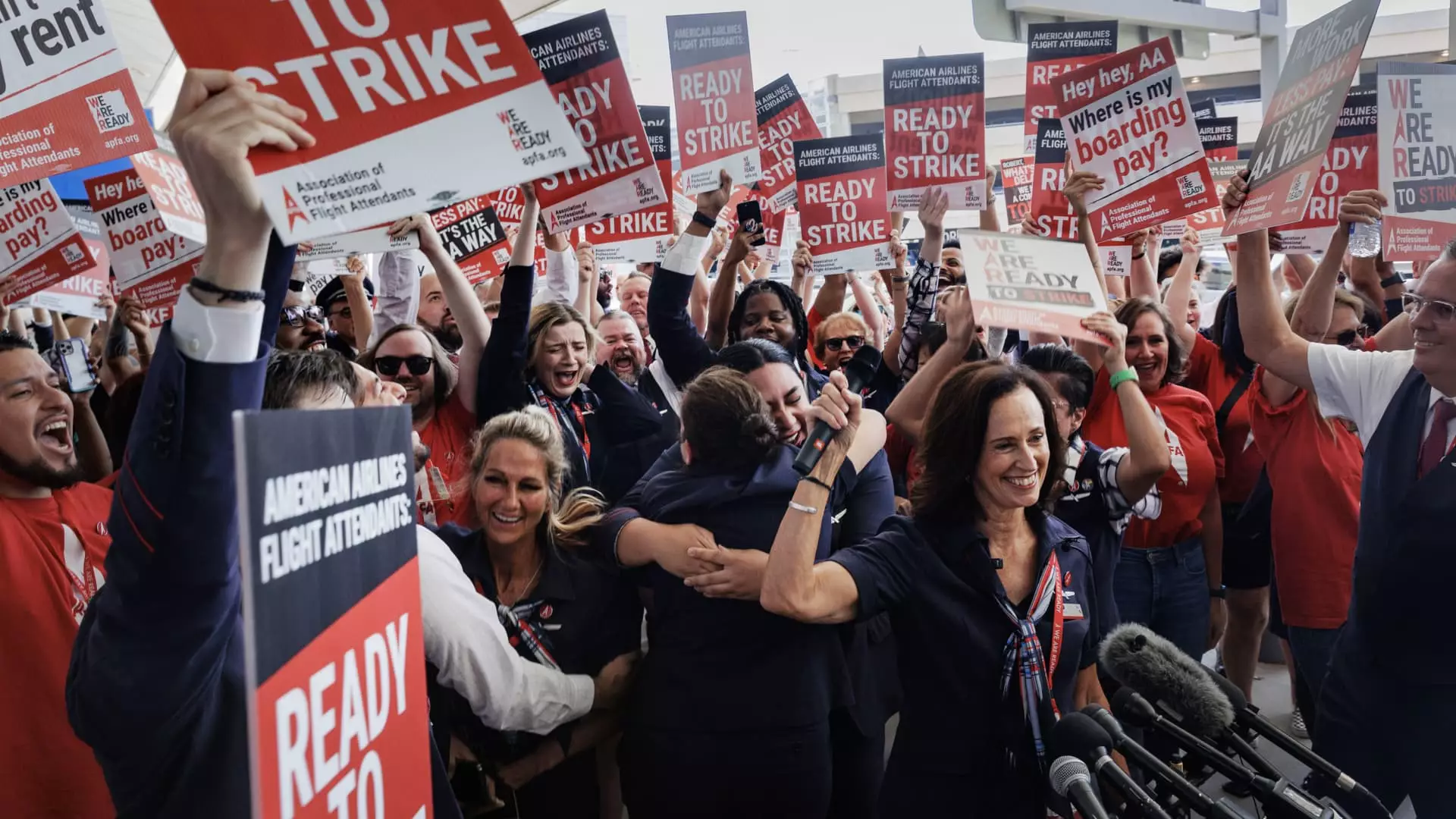In a landmark decision reflecting the ongoing evolution of labor relations in the aviation sector, American Airlines flight attendants have ratified a new five-year labor agreement. This conclusive vote comes after protracted negotiations that spanned several months, marked by heightened tensions and the looming threat of labor strikes. A decisive 87% of voting attendants approved the contract, signifying a unified demand for better compensation and working conditions among the airline’s cabin crew, which numbers around 28,000 members.
One of the most striking features of this new agreement is the immediate wage increase of up to 20.5%. This enhancement is not merely future-oriented; it addresses the backlog of wage adjustments stemming from the disruptions caused by the Covid-19 pandemic and the associated rising cost of living that has affected so many American households. Additionally, the contract includes significant retroactive pay, thus compensating flight attendants for the extended period of uncertainty and negotiation that characterized this labor struggle. As Julie Hedrick, president of the Association of Professional Flight Attendants (APFA), articulated, this agreement marks a substantial milestone, indicating the labor force’s resilience and collective bargaining power.
From an organizational perspective, this successful negotiation alleviates pressure on the senior management team at American Airlines. Prior to the approval of this contract, there was genuine apprehension that a strike could disrupt operations and lead to financial losses. American Airlines CEO Robert Isom emphasized the significance of reaching this agreement, framing it as a key priority for the company’s leadership. The involvement of federal officials, including Transportation Secretary Pete Buttigieg and Labor Secretary Julie Su, further underscores the heightened importance of these negotiations within the broader context of the airline industry.
This development is representative of a larger trend affecting various sectors of the economy, where workers are increasingly advocating for better pay and work conditions. Parallel negotiations are underway in different airlines, with United Airlines and its flight attendants still hashing out their own agreement, while Alaska Airlines cabin crew recently rejected a tentative deal. This collective movement toward improved worker conditions mirrors recent successes achieved in other industries, including automotive and entertainment, where labor strikes have resulted in substantial pay raises.
Going forward, the approval of this agreement for American Airlines’ flight attendants may herald a ripple effect throughout the airline sector and beyond. As workers collectively navigate the challenges of inflation and post-pandemic recovery, the American Airlines agreement sets a precedent that could influence future negotiations in the industry. With Boeing workers also considering a significant contract offer, the momentum for labor rights and fair compensation shows no sign of abating. The evolving landscape of labor relations indicates a renewed empowerment of the workforce, where successful negotiations become a testament to the strength of collective bargaining in an ever-changing economy.


Leave a Reply